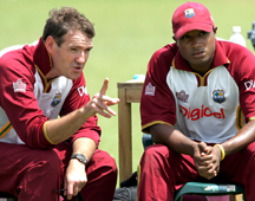 A sports psychologist works with amateur and professional athletes to achieve goals, resolve problems and improve athletic performance. Sports psychology is a relatively new field that combines aspects of psychology, physiology and even kinesiology. Continue reading to learn how sports psychologists help athletes.
A sports psychologist works with amateur and professional athletes to achieve goals, resolve problems and improve athletic performance. Sports psychology is a relatively new field that combines aspects of psychology, physiology and even kinesiology. Continue reading to learn how sports psychologists help athletes.
What Exactly is Sports Psychology?
The ultimate goal of sports psychology is to improve the athlete’s physical performance. Applied sports psychology involves hands-on assessments of which psychological factors affect athlete performance and how the game psychological affects individuals. Sports psychologist work with a variety of people, such as athletes, coaches, trainers.
How does Sports Psychology Help?
Sports psychology has been shown to help with improving concentration, confidence and communication, according to the American Psychological Association. For example, athletes are taught how to maintain focus and mental intensity during their game through attention control training and mind awareness techniques. Confidence is built through positive feedback and counseling. Communication skills are improved through learning appropriate listening and assertiveness training. In addition to this, sports psychology can reduce anxiety and stress through learning helpful breathing, relaxation or cognitive techniques. As part of this, sports psychologists take an active role in helping athletes develop and reach their performance goals. Finally, sports psychologists also strive to help members of each team improve your trust and respect for each other. As a result of all of this, athletes are able to improve their performance.
What Areas Do Sports Psychologists Study?
From a research perspective, sports psychologists study the relationship performance and personality. For example, mental toughness is the trait that helps athletes maintain a high performance. Self-efficacy is the specific confidence that an athlete has in their abilities to accomplish certain activities. In addition to this, sports psychologists also study the art of coaching and leadership. This enables them to help coaches improve their management and communication efficacy. Finally, sports psychologists study group dynamics and the social psychology of athletic teams.
What is the Association for the Advancement of Applied Sport Psychology?
The Association for the Advancement of Applied Sport Psychology (AAASP) is the premier professional sports psychology organization. Although they were only recently founded in 1986, the AAASP has made excellent progress with promoting and developing sports psychology. In fact, the AAASP is the world’s largest sports psychology organization. Members of the AAASP enjoy exclusive research, educational and networking opportunities.
What is the Standard Certification?
Current AASP members can apply to become a certified consultant, or CC-AASP. Candidates must have either a master’s or doctoral degree that is related to psychology or sports. They must have at least 40 hours of work with a mentor, 100 hours working with athletes and 400 hours of supervised experience. At the time of certification, the applicant must also demonstrate strong knowledge of psychopathology, counseling, sports techniques and how to design and test performance. In addition to this, they must have a firm grasp of social, health, cognitive and behavioral psychology.
What are the Benefits of Being Certified?
There are excellent benefits of being certified as a CC-AASP. Certification improves the safety and quality of exercises and sporting events. Having a nationally recognized system improves the authority and effectiveness of certified sports psychologists. Using the standardized AASP system helps to reduce errors and injuries while improving athlete’s performance. Finally, AASP certification allows sports psychologists to work with Olympic athletes.
Related Resource: Cognitive Psychology Jobs
To recap, sports psychologists work directly with individual athletes or teams to elicit optimal performance and involvement. They do this through various techniques, such as increasing self-awareness and improving the quality of teamwork. A sports psychologist is a key member of every successful amateur and professional sports team.




